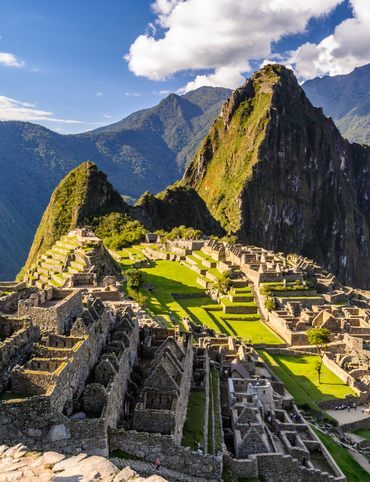

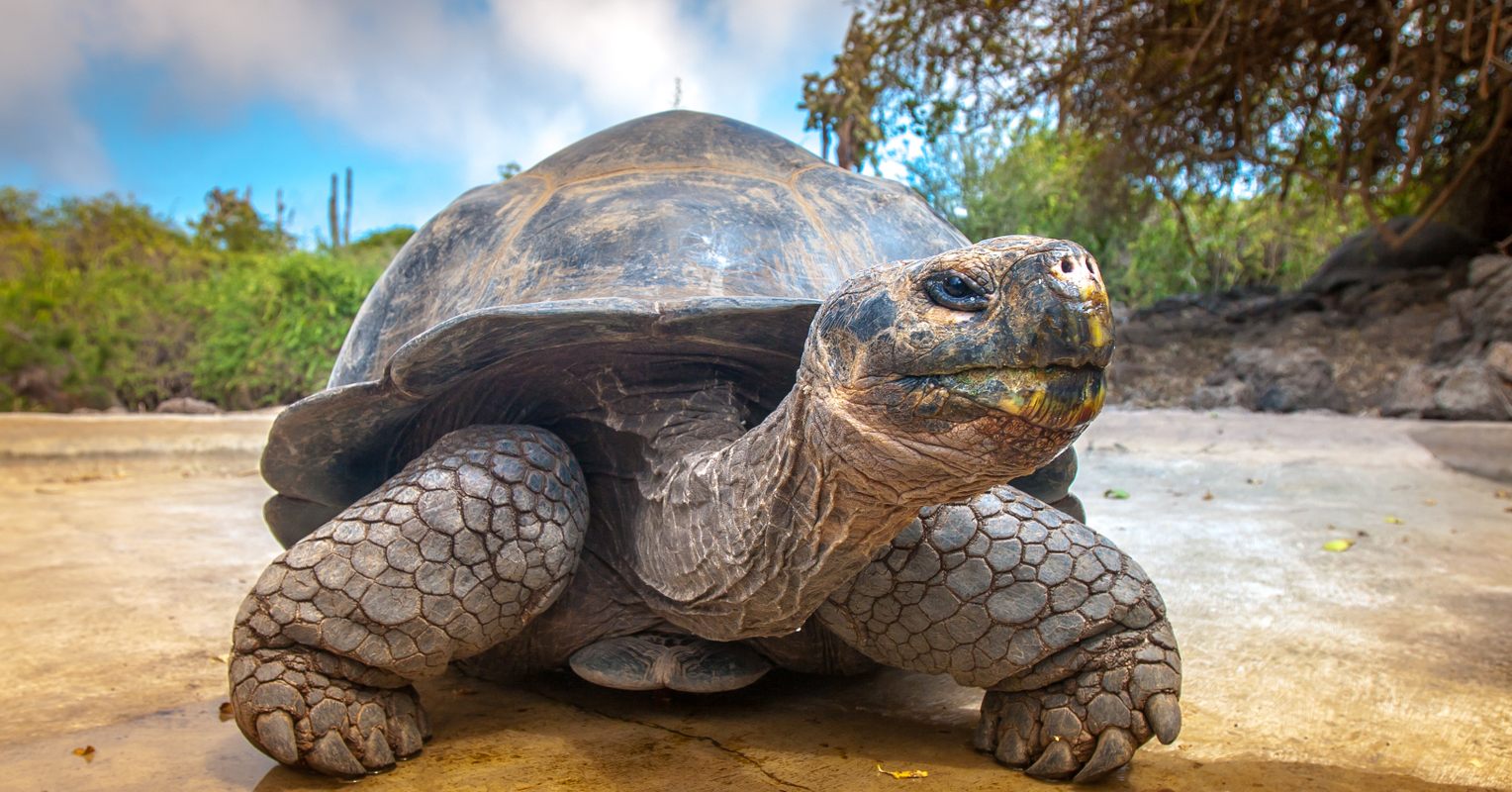
South America
8 days
7 nights
14 people
Moderate
Wildlife & Nature

The Galápagos Islands aren’t simply the place that inspired Darwin’s theory of evolution; they continue to advance it, showcasing how unique life develops in distinct environments. Track species that can’t be found anywhere else, from encounters with “Christmas” iguanas and curved beaked albatrosses to glimpses of the finches that changed our understanding of the natural world. Snorkel through crystal clear waters, hike along wild volcanic ridges, and get a living lesson on ecology and conservation in one of the planet’s most fascinating, unique and wondrous habitats.
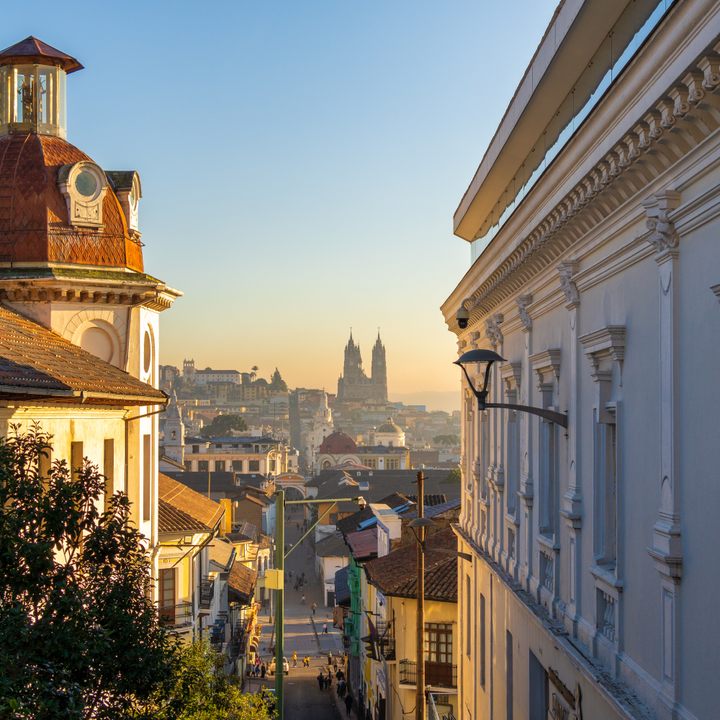
Arrive into Quito, Ecuador’s capital and the jumping off point for your wild adventure on the Galápagos Islands. You will be picked up from the airport and brought to a nearby hotel to meet your co-adventurers at a welcome dinner that will highlight the best of Ecuadorian cuisine.

Arrive into Quito, Ecuador’s capital and the jumping off point for your wild adventure on the Galápagos Islands. You will be picked up from the airport and brought to a nearby hotel to meet your co-adventurers at a welcome dinner that will highlight the best of Ecuadorian cuisine.
Wyndham Quito Airport, Quito
Welcome Dinner
Wyndham Quito Airport, Quito
Welcome Dinner

Bienvenidos! Welcome to what locals call The Capital of Paradise, San Cristobal Island. Fly from Quito to the Galápagos island of San Cristobal, the quaint seaside capital of the Galápagos. Your introduction to the archipelago’s unique wildlife begins in the azure waters around the steep crags of Kicker Rock, where you will snorkel through schools of colorful fish and, if you’re lucky, spot a shark or two! In the crevasses of the rock, you might encounter blue-footed boobies, masked-boobies and frigate birds. Sharing stories of today’s animal encounters over lunch and dinner with your fellow intrepid explorers.

Bienvenidos! Welcome to what locals call The Capital of Paradise, San Cristobal Island. Fly from Quito to the Galápagos island of San Cristobal, the quaint seaside capital of the Galápagos. Your introduction to the archipelago’s unique wildlife begins in the azure waters around the steep crags of Kicker Rock, where you will snorkel through schools of colorful fish and, if you’re lucky, spot a shark or two! In the crevasses of the rock, you might encounter blue-footed boobies, masked-boobies and frigate birds. Sharing stories of today’s animal encounters over lunch and dinner with your fellow intrepid explorers.
Opuntia Hotel, or similar, San Cristobal
Breakfast, Lunch, Dinner
Opuntia Hotel, or similar, San Cristobal
Breakfast, Lunch, Dinner
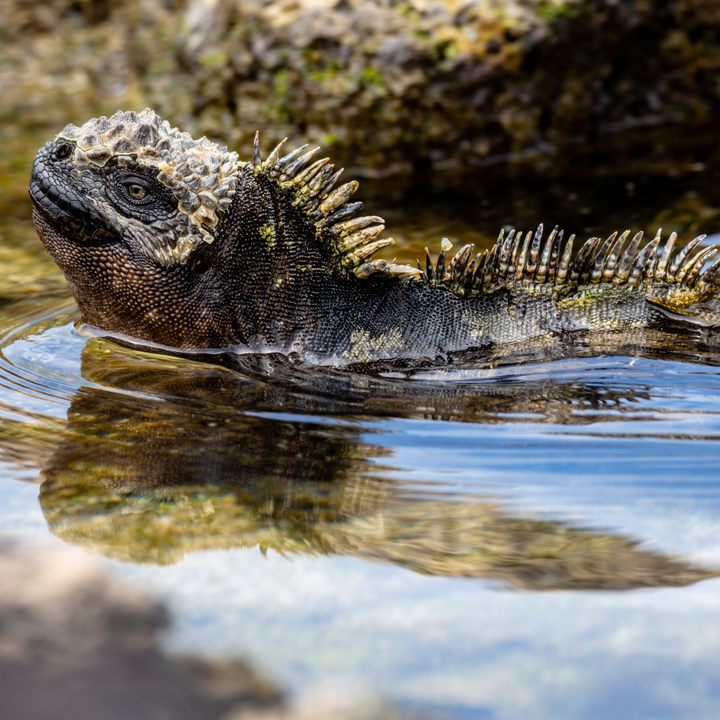
Hop over to Española Island, quite possibly the most spectacular Galápagos island, to visit the Punta Suarez wildlife sanctuary. Hike through unique windswept scenery towards Suarez Point, and enjoy panoramic clifftop views. Keep an eye out for painted “Christmas” marine iguanas, Galápagos hawks, masked nazca boobies, and the noble waved albatrosses. Then you will head to Gardner Bay, a beach full of sea lions and hood mockingbirds, where you will have time to relax on the beach, and go snorkelling It’s likely you will swim with reef sharks, turtles and many species of tropical fishes.

Hop over to Española Island, quite possibly the most spectacular Galápagos island, to visit the Punta Suarez wildlife sanctuary. Hike through unique windswept scenery towards Suarez Point, and enjoy panoramic clifftop views. Keep an eye out for painted “Christmas” marine iguanas, Galápagos hawks, masked nazca boobies, and the noble waved albatrosses. Then you will head to Gardner Bay, a beach full of sea lions and hood mockingbirds, where you will have time to relax on the beach, and go snorkelling It’s likely you will swim with reef sharks, turtles and many species of tropical fishes.
Opuntia Hotel, or similar, San Cristobal
Breakfast, Lunch, Dinner
Opuntia Hotel, or similar, San Cristobal
Breakfast, Lunch, Dinner
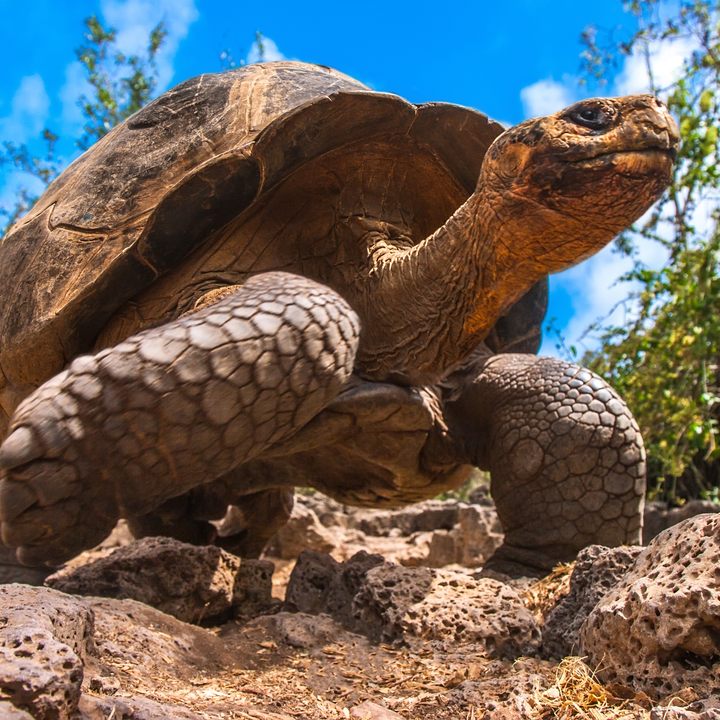
Take an early morning boat ride towards Isla Floreana. Along the way, keep your eyes peeled for wildlife such as dolphins and whales. On the island, snorkel in the clear blue waters in search of large, smiling sea turtles and sting rays. Before lunch, visit Post Office Bay to learn about the age old post tradition dating back to 18th century. After lunch, venture to a black sand beach that belongs to the Witmers, descendants of some of the first settlers on the Galápagos. The town here, Puerto Velasco Ibarra, has about 150 residents and an intriguing history involving deaths, disappearances, and murders. Later in the afternoon, wave goodbye to Floreana and continue to Isla Isabela (approximately 2 hours).

Take an early morning boat ride towards Isla Floreana. Along the way, keep your eyes peeled for wildlife such as dolphins and whales. On the island, snorkel in the clear blue waters in search of large, smiling sea turtles and sting rays. Before lunch, visit Post Office Bay to learn about the age old post tradition dating back to 18th century. After lunch, venture to a black sand beach that belongs to the Witmers, descendants of some of the first settlers on the Galápagos. The town here, Puerto Velasco Ibarra, has about 150 residents and an intriguing history involving deaths, disappearances, and murders. Later in the afternoon, wave goodbye to Floreana and continue to Isla Isabela (approximately 2 hours).
Casa Marita Hotel, or similar, Isabela Island
Breakfast, Lunch, Dinner
Departures before May 1, 2024, will instead spend the day on island Isabel and snorkel the coves of Concha Perla.
Casa Marita Hotel, or similar, Isabela Island
Breakfast, Lunch, Dinner

Hike the active Sierra Negra volcano today, one of the most active volcanoes in the Galápagos, and explore its crater, sitting amongst the island’s lush flora. Experience a mesmerizing bird’s eye view of this magical landscape. The hike will be approximately 3 – 3.5 hours (dependent on weather), so comfortable footwear is a must! Make your way back to town in the late afternoon for some free time to curl up with a book or venture down to the water for a relaxing swim before dinner.

Hike the active Sierra Negra volcano today, one of the most active volcanoes in the Galápagos, and explore its crater, sitting amongst the island’s lush flora. Experience a mesmerizing bird’s eye view of this magical landscape. The hike will be approximately 3 – 3.5 hours (dependent on weather), so comfortable footwear is a must! Make your way back to town in the late afternoon for some free time to curl up with a book or venture down to the water for a relaxing swim before dinner.
Casa Marita Hotel, or similar, Isabela Island
Breakfast, Lunch, Dinner
Casa Marita Hotel, or similar, Isabela Island
Breakfast, Lunch, Dinner
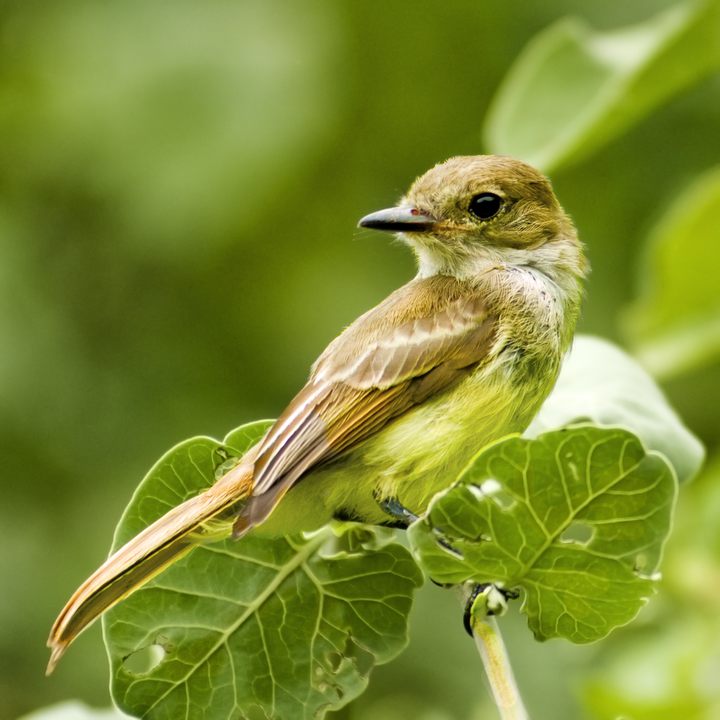
Start your second day on Isla Isabela snorkeling around Tintoreras. Board small pangas (inflatable, motorized dinghies) for Tintoreras, better known as Shark Alley. On arrival, hop off for a short walk on this isolated islet and popular iguana nesting site that’s home to hundreds of marine iguanas. Snorkel in a calm inlet with colourful fish and winding underground lava tubes. This area is frequented by green sea turtles that like to rest on the calm, sandy bottom.

Start your second day on Isla Isabela snorkeling around Tintoreras. Board small pangas (inflatable, motorized dinghies) for Tintoreras, better known as Shark Alley. On arrival, hop off for a short walk on this isolated islet and popular iguana nesting site that’s home to hundreds of marine iguanas. Snorkel in a calm inlet with colourful fish and winding underground lava tubes. This area is frequented by green sea turtles that like to rest on the calm, sandy bottom.
Ikala Hotel, or similar, Santa Cruz
Breakfast, Lunch, Dinner
Ikala Hotel, or similar, Santa Cruz
Breakfast, Lunch, Dinner
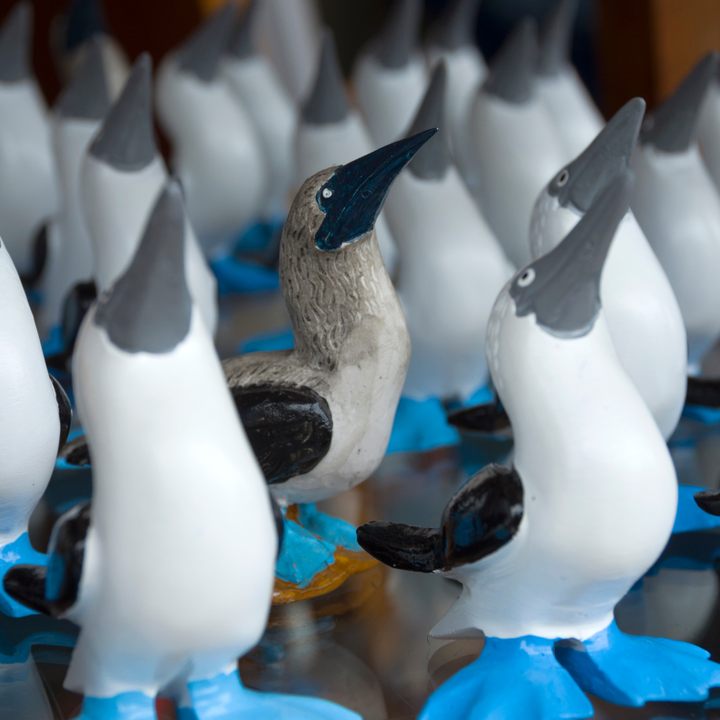
Meet the residents of the small uninhabited island of North Seymour today. This island is famous for being the home of thousands of majestic land iguanas, one of Galápagos’ most iconic animals. Don’t forget to turn your eyes to the sky - North Seymour is also home to large populations of blue-footed boobies, frigatebirds, common noddies, and swallow-tailed gulls. Return to the boat for lunch, then sail to Bachas’ beach on Santa Cruz Island. This is a nesting area for sea turtles and there’s a small lagoon where flamingoes can occasionally be seen. Strap on your mask one last time for some snorkeling through more beautiful waters. Savor your last evening in paradise with a farewell dinner, recounting the many splendid sightings and shared adventures.

Meet the residents of the small uninhabited island of North Seymour today. This island is famous for being the home of thousands of majestic land iguanas, one of Galápagos’ most iconic animals. Don’t forget to turn your eyes to the sky - North Seymour is also home to large populations of blue-footed boobies, frigatebirds, common noddies, and swallow-tailed gulls. Return to the boat for lunch, then sail to Bachas’ beach on Santa Cruz Island. This is a nesting area for sea turtles and there’s a small lagoon where flamingoes can occasionally be seen. Strap on your mask one last time for some snorkeling through more beautiful waters. Savor your last evening in paradise with a farewell dinner, recounting the many splendid sightings and shared adventures.
Ikala Hotel, or similar, Santa Cruz
Breakfast, Lunch, Dinner
Ikala Hotel, or similar, Santa Cruz
Breakfast, Lunch, Dinner
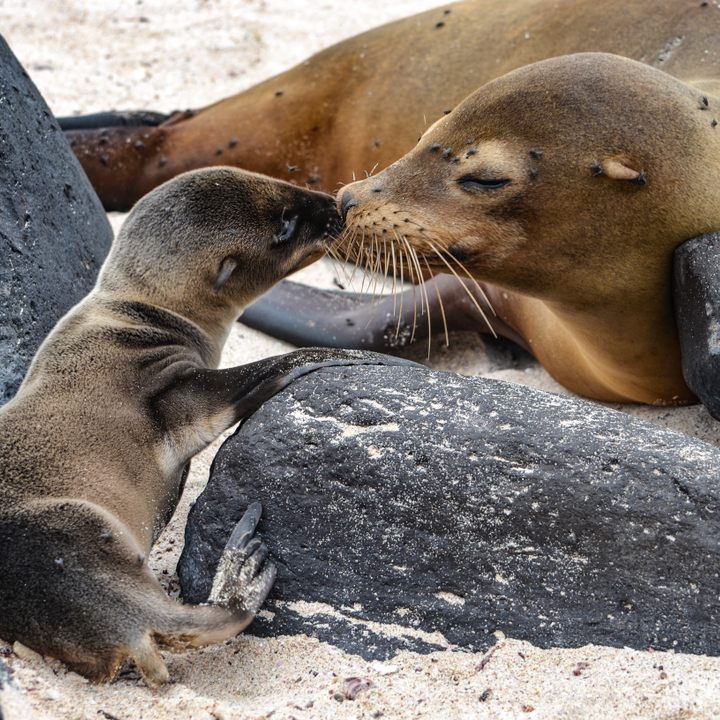
On your final day, you will visit the Charles Darwin Research Station, which is dedicated to the conservation and protection of the Galápagos Islands. Then it’s time to say goodbye to this one-of-a-kind archipelago and fly back to mainland Ecuador. From Quito, continue to explore more of South America, or make your way back home after a truly exhilarating adventure!

On your final day, you will visit the Charles Darwin Research Station, which is dedicated to the conservation and protection of the Galápagos Islands. Then it’s time to say goodbye to this one-of-a-kind archipelago and fly back to mainland Ecuador. From Quito, continue to explore more of South America, or make your way back home after a truly exhilarating adventure!
Breakfast
Breakfast
Deposit to book your trip: $250 USD.
Balance due 90 days prior to departure.
The listed price of the trip is per person based on double occupancy.
Deposit to book your trip: $250 USD.
Balance due 90 days prior to departure.
The listed price of the trip is per person based on double occupancy.
You’re in good company.
Opt for a Private Room to yourself, subject to availability, for a supplemental cost of $1,230USD.
Solo travelers typically make up about half of our small groups. With curiosity at the center of our experiences, there’s a natural camaraderie that develops over the course of a trip.
If you don’t opt for a Private Room, you'll be matched with another solo traveler of the same gender.
You’re in good company.
Opt for a Private Room to yourself, subject to availability, for a supplemental cost of $1,230USD.
Solo travelers typically make up about half of our small groups. With curiosity at the center of our experiences, there’s a natural camaraderie that develops over the course of a trip.
If you don’t opt for a Private Room, you'll be matched with another solo traveler of the same gender.
Participants should be comfortable walking 2 to 4 miles over the course of a day. You should also be prepared to participate in the itinerary’s various water activities, which include swimming, snorkeling, and kayaking, as these are a highlight of the trip and some of the best ways to observe the local wildlife and geology. Please contact us directly if you have further questions about health and fitness level for this trip.
Participants should be comfortable walking 2 to 4 miles over the course of a day. You should also be prepared to participate in the itinerary’s various water activities, which include swimming, snorkeling, and kayaking, as these are a highlight of the trip and some of the best ways to observe the local wildlife and geology. Please contact us directly if you have further questions about health and fitness level for this trip.
You should plan to arrive by 1 p.m. on Day 1. For departure, we recommend a post night in Quito. Quito International Airport (UIO) connects to a range of flight hubs in North America and Europe. The best flight connections to Quito are offered by American Airlines and Avianca Airlines.
*Airport transfers are only provided if arriving & departing on the trip dates, or if pre/post arrangements have been made through Atlas Obscura.
You should plan to arrive by 1 p.m. on Day 1. For departure, we recommend a post night in Quito. Quito International Airport (UIO) connects to a range of flight hubs in North America and Europe. The best flight connections to Quito are offered by American Airlines and Avianca Airlines.
*Airport transfers are only provided if arriving & departing on the trip dates, or if pre/post arrangements have been made through Atlas Obscura.
As part of the trip, we will have a domestic flight on Day 2 from Quito to the Galapagos Islands and on Day 8 from the Galapagos Islands to Quito. The flight is approximately 2 1/2 hours in duration and may include a stop in Guayaquil depending on the flight.
As part of the trip, we will have a domestic flight on Day 2 from Quito to the Galapagos Islands and on Day 8 from the Galapagos Islands to Quito. The flight is approximately 2 1/2 hours in duration and may include a stop in Guayaquil depending on the flight.
Check out the Essential Trip Information for this trip or our general FAQs.
Call us at +1 833-919-9154
Send us a
Have a question for us about Magical Galapagos: Wonders of Evolution? We're here to help!
Call us at +1 646-961-4857
Check out our FAQ
This site is protected by reCAPTCHA and the Google Privacy Policy and Terms of Service apply.
Have a question for us about Magical Galapagos: Wonders of Evolution? We're here to help!
Call us at +1 833-919-9154
Check out our FAQ
This site is protected by reCAPTCHA and the Google Privacy Policy and Terms of Service apply.
Sign up for our emails.
Have a question for us? We're here to help!
Call us at +1 833-919-9154
Check out our FAQ
This site is protected by reCAPTCHA and the Google Privacy Policy and Terms of Service apply.